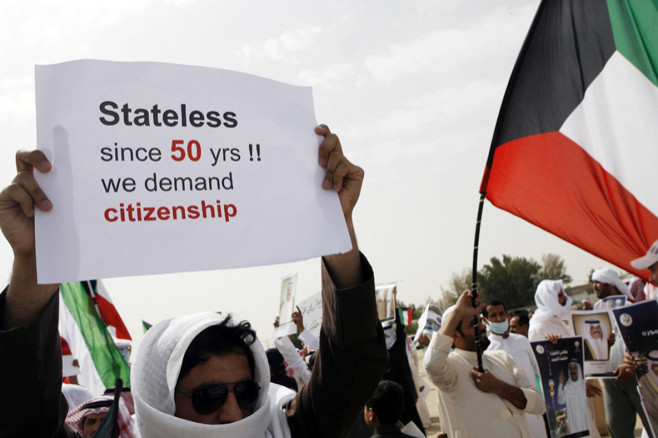Kuwait's Stateless Bidun People Beaten And Ignored By Government: Human Rights Watch

The stateless Bidun people in Kuwait are facing increasing marginalization and discrimination as a result of political dysfunction and the state security forces’ violent suppression of public protest.
The advocacy group Human Rights Watch, or HRW, has spoken out against the conditions faced by some 106,000 members of the Bidun community, whose citizenship claims remain unaddressed by the Kuwaiti government.
“Kuwait continues to exclude thousands of stateless people, known as Bidun, from full citizenship, despite their longstanding roots in Kuwaiti territory,” read an 2013 HRW report on Kuwait. “The government continues to violently disperse Bidun protests while promising to grant Bidun social benefits including government-issued documentation and free education and health care.”
Many Bidun failed to register for citizenship during the government’s last major registration period in 1961 due to illiteracy and poverty, and their children and grandchildren have subsequently also been denied legal status until more recently when parents were allowed to register births with the state.
The Bidun are primarily descendants of Bedouin tribe members who originally hailed from northern Saudi Arabia.
Government authorities have said that the Bidun are “illegal residents” that have come in from surrounding countries and that many have intentionally destroyed their identification documents to mask their nationality and receive benefits from the state.
In March 2011, the Kuwaiti government extended free health care and education to the Bidun and allowed them to register marriages, births and deaths.
“However, those benefits don’t provide a path to citizenship,” HRW said in its report. “Some Bidun complained that bureaucratic processes prevented many from accessing those benefits.”
The recent political turmoil in Kuwait between has further pushed aside issues concerning the Bidun.
Last February, Islamists made strong gains in the parliamentary elections but were later removed after the Constitutional Court ruled the elections invalid and reinstated the previous parliament elected in 2009.
Prime Minister Emir Sabah al-Ahmed al-Sabah dissolved the reinstated parliament in October and set elections for Dec. 1, 2012, which were boycotted by various political groups.
Throughout 2012, the government has consistently cracked down on political dissent, including protests by the Bidun demanding legal status.
“Kuwait’s political crisis had a negative impact on the country’s human rights record as security forces cracked down on protests and the government grew intolerant of dissident speech,” Nadim Houry, deputy Middle East director at Human Rights Watch, said in a statement.
“The government should reverse this trend in 2013 by dropping all speech-related charges against online activists and former members of parliament and finally addressing the Bidun’s outstanding claims,” he added.
© Copyright IBTimes 2024. All rights reserved.





















